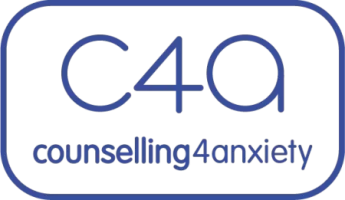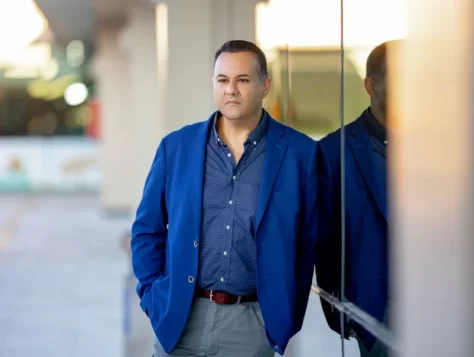Welcome to Counselling 4 Anxiety
Supporting the Management of Anxiety Through Personal Emotional Growth
Anxiety Can Be Managed and Reduced
You may be searching for counselling or something associated with anxiety. This may be out of curiosity or it may be because you are looking for some help and assistance in managing anxiety. This could be for someone you love or for yourself.
It is important to mention that anxiety does not need to be life limiting. It is treatable and 'talking therapies' like counselling have made a life changing difference to the lives of many people across the world.
Today, thankfully, as a society we understand that our mental and emotional well-being is just as important as our physical well-being and stigmas around using counselling and therapeutic support at times when we feel overwhelmed or even when we just need to be heard, are finally on their way out; and about time too!
It is important to note that anxiety is a process within the body that does not start with bodily feelings such as tight muscles, a dry mouth, or a feeling that something bad may be about to happen. It starts earlier through experiences, thoughts and feelings.
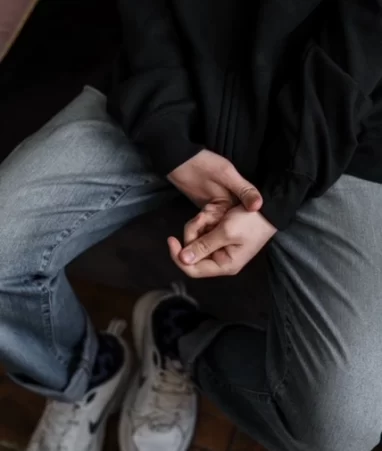
Anxiety therefore starts off in the mind and with a thought process that sees threat, risk or harm. Our minds interpret that as a signal for the body to be ready to act against a threat. This is why anxiety feels stressful and people say that they ‘feel on edge’. The body is in a heightened state of alert with stress hormones such as adrenaline and cortisol being dumped into the body, ensuring that the body can endure physical stress, as a form of survival. This is the classic ‘fight or flight’ response that you may have heard about and today we also believe that ‘freezing’ in frightful situations is also part of an inbuilt survival response. (There is some debate about ‘fawn’ as another one of these responses, where people overlook their own needs to please and agree with others).
Anxiety can take many forms, such as a constant worry, fear of something catastrophic taking place as a recurrent thought and ongoing fears about health, social engagement or even travelling. With the recent Covid-19 pandemic, such global events have further heightened stress reactions in our body. However, anxiety does not have to define you. You can define who and what you are, and what you want to achieve and be in life. You can therefore manage and understanding your anxiety through counselling support and assistance through Counselling4Anxiety.
"The mind is like Velcro for bad experiences & Teflon for the good ones. We need to uncouple the velcro"
Articles




Anxiety
My work on anxiety will include taking a person centred approach where I bring in different modes of work to help someone gain an understanding about the internal risk scanning process of anxiety, the seeds of where it could have come from, how family dynamics could also have impacted on it, and destigmatising shameful feelings and stressful thoughts and emotions that may raise anxiety within individuals.
Understanding why the anxiety may have developed is a foundational starting point in managing it.
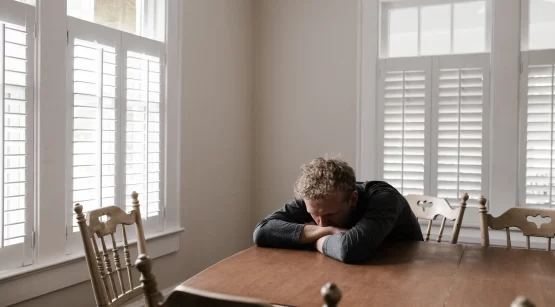
Honouring the Body
My work is also based on honouring the body’s defensive systems that are aimed at protecting ourselves from danger. Together we can explore whether these defensive systems are over-reacting to internal or external body situations. This can make it easier to see and feel anxiety, not as a catastrophic threat, but as a part of the body’s inbuilt defensive system that can be adapted back into balance or a form of equilibrium.
My work therefore includes reframing the way that individuals see anxiety, thereby reducing its pull on them.

Relaxation techniques
I also work on relaxation techniques, positive visualisations and facilitating new ways of understanding, thinking about, managing and ultimately, reducing anxiety for people who have suffered repeated bouts of anxiety in their lives. This may have taken the form of high stress reactions, muscular tensions, panic attacks, phobias causing low moods, ruminations about fearful thoughts and recurring catastrophic thoughts that seem to carry on. It is also important to add that phobias may be attached to certain situations such as flying, travelling in enclosed spaces, health related fears, thoughts related to shame and even being scared of going into the ‘outside world’ (agoraphobia).
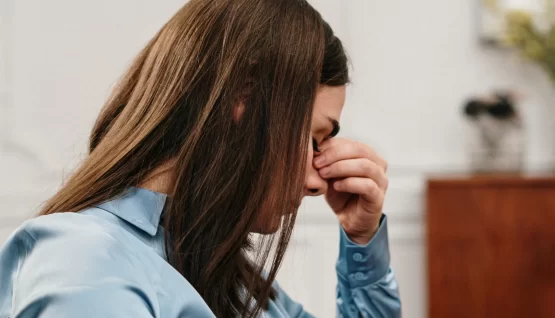
Support
Allied with this, I work on feelings of self-esteem, feelings of inadequacy in being able to carry out tasks such as leaving the home, travelling, being in enclosed spaces and in being in social situations. Ultimately my work involves supporting the development of independent living and decision making.
I fully understand how anxiety can make life feel that it has stopped, but there is a path forward, a way to feel open and confident and a way to feel that life can move forward, albeit small steps in the beginning.
My name is Fiyaz Mughal (OBE MBACP MNCIP) and I have been working for over 25 years within communities in the United Kingdom. I am a qualified Counsellor and Cognitive Behavioural Hypnotherapist and have a Neuroscience background. At the core of my work, has been the well-being of people and communities, and ensuring that they can be listened to, have their voices heard, and be emotionally held in a place that allows them to heal. (You can read more about my work through my blog.)
What drives me? Ensuring people have the greatest chance to live their best lives drives me. This means that I am committed to working with clients to ensure that emotional, mental health and behavioural difficulties are worked through, creating a new path for healing and development. A better future is possible!
I am a registered BACP, NCIP and GHR member and I studied Neuroscience in the mid-1990s in University College London. As a scientist by the training in my degree, I integrate my science background with my therapy training and experience, thereby incorporating psycho-educational work, core Counselling work and Cognitive Behavioural Hypnotherapy with my clients.
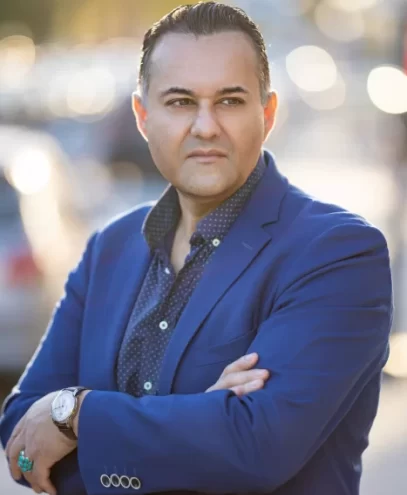
Allied to this, I have lived experience of managing long-term anxiety in my life and I have sought pathways that have worked for me, in managing the anxiety. One of those pathways, was dedicated and committed work in therapy in understanding the root causes of my anxiety, how it manifested itself in my life, my thoughts and ultimately in my actions. This process of understanding, opened up a way to managing the anxiety and ultimately in significantly reducing its impacts on my life.
This is also why I have chosen to be a counsellor and to give back to people and to communities, who ultimately make up my life’s work; because in the end, the more self-empathic, understanding and emotionally connected we are to each other, the less we feel anxious and unhappy. It really does come down to something as simple as this.
If you would like to arrange an initial chat, make an appointment or if you have any questions, please email me or call me on 0208 906 6877.
You can also read more about my work through the blog section on this site.
"A key goal of treatment is to get people to learn to avoid 'avoidance' which keeps the anxiety going"
Testimonials
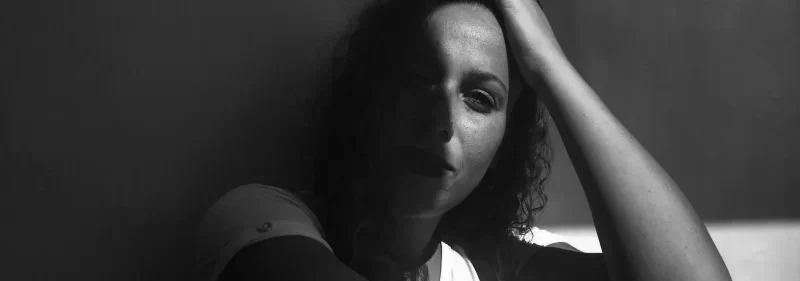
Anxiety, Depression and Obsessive Compulsive Disorder (OCD)
Anxiety and depression seem to co-exist at points, demonstrating that mental health difficulties can be complex issues that need to be addressed through multiple modes of therapeutic intervention. They also seem to be cyclical and linked to self-esteem. This means that as self-esteem drops within clinical depression for example, it has a knock on effect on the ability of individuals to carry out daily tasks which also can raise their anxiety and even bring on feelings of panic and panic attacks. The sense of being ‘out of control’ is something that affects some people, as part of clinical anxiety and depression with associated anxiety. These feelings are also interconnected with the development of, or perpetuation of internalised phobias that may grow over time and affect the general day to day functioning of individuals.
Conversely, anxiety and OCD also have nexus or convergent points and people who have obsessive thoughts and compulsive ritualistic behaviours, also have high levels of anxiety associated with them. In other words, some people try to ‘think their way out of’ thoughts, thereby ironically re-enforcing them and the intrusive thought patterns that are causing them distress. ‘Thinking a way out of thoughts’ may provide some initial relief, however, the longer this continues, the more embedded the OCD issues become. The solution for those people with OCD is therefore to dis-associate from this strategy that does not work.
Or some individuals may carry out ritualistic behaviours that have a pattern to them and which bring some temporary form of relief to sufferers, as though by carrying out these actions, the likelihood of catastrophic events can be curtailed or reduced. These fears, sometimes allied with ‘black and white’ catastrophic thoughts of perceived future harm, super fuel anxiety that is the engine for ruminations. It is partly the reason why OCD and anxiety are so interlinked and interwoven.
Uncoupling the fears, whilst understanding where the thoughts may have originated from and supporting people with stress reduction and management techniques, form the basis of the therapy work that I bring to my practice. Anxiety and OCD, do not have to be life-limiting. They can be managed so that you thrive.
"We have developed minds that have adapted to remember bad things and to anticipate them & calculate for them happening again. It does not mean that everything we think of, must be true"
Fees & availability
Sessions last 50 minutes and are £60 per session.
Notice on cancellations should be given within 48 hours of them being held, otherwise sessions will be charged at the rate highlighted.
Location
I work from my private practice located near Knightsbridge, Marble Arch, Marylebone, Westminster, Kensington & Chelsea in Central London. In addition to providing face-to-face therapy, I also offer telephone counselling and online sessions for clients in the London area and beyond via Zoom or Skype. Contact me to find out more about how online therapy works.
Get in Touch
Feel free to contact me via the form below or on 0208 906 6877 if you have any questions about how therapy works, or to arrange an initial assessment appointment.
All enquires are usually answered within 24 hours, and all contact is strictly confidential and uses secure phone and email services.
© Counselling4Anxiety
Powered by WebHealer
